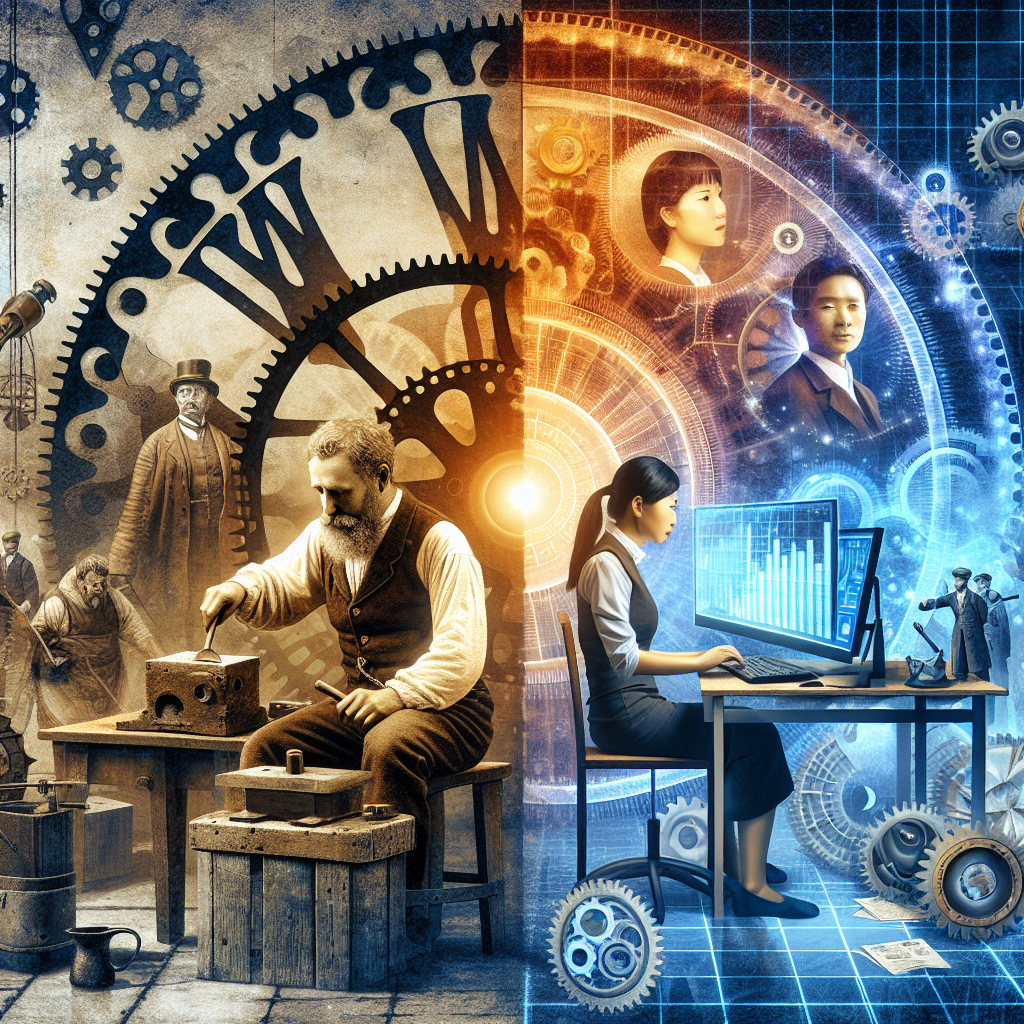The Ongoing Revolution in Technology and Its Impact on Work

Today, while attending a class for my Master’s in Technology in Digital Leadership at the National University of Singapore (NUS), my professor offered a prediction about technology’s landscape a decade from now. This prompted me to reflect on the future of work. How will work evolve, and how can we prepare to stay relevant? What impact will this have on society, and should we be concerned about the advance of technologies like artificial intelligence?

I believe there’s no need for concern if we shift our focus from technology to the customer. Although technology keeps evolving, customer needs remain constant. Tools and equipment may change, but fundamental human demands persist. Business models evolve, yet the core purpose of business remains unchanged. Despite the advances associated with Industry 4.0, we are still struggling to provide optimal customer experiences.
A decade ago, phone banking was incredibly frustrating. I had a simple question, called the customer service line, and got a recorded menu instead of a human response. Even today, the frustration persists with advanced technologies like chatbots, which often fail to understand straightforward queries while human operators remain unreachable.
Banks invest heavily in digital transformation, but they also waste a lot. They spend hours posting on social media to engage customers, who forget about these interactions within minutes. They create subscription models that customers rarely revisit. They generate digital documents, emails, and files that often get lost in the cloud rather than serving the customer effectively.
We have reached a point where technology is advanced and user-friendly enough to be effectively integrated to better serve our customers. This is not just about productivity; it’s also about meaningful customer engagement. If banks don’t continually improve the customer experience, they will remain stuck in mediocrity, regardless of their innovative financial products.
Digital transformation is not just about technology; it’s primarily about the customer. While technology plays a role, the real transformation lies in serving customer needs more effectively through improved operations, mass customization, and new offers.
Contrary to popular belief, ATMs didn’t eliminate bank teller jobs. No technology can transform an industry unless it is linked to an emerging market through a viable business model. Interestingly, the technology driving digital companies’ explosive growth often isn’t even that sophisticated. For impactful changes, all you need is a system that can perform tasks traditionally handled by humans more efficiently.
From a societal perspective, investment in new technology, equipment, and software is crucial for economic growth. An ongoing technological revolution will enable the economy to produce goods and services more efficiently. Simply put, the better the technological innovations we have, the more output we can generate compared to older systems.
Human productivity is the driving force behind the increase in global wealth, power, and living standards over time. Productivity, defined as output per person and driven by advances in technology, has steadily improved over the years.
In the banking industry where I work, technology will continue to be a driving force behind economic growth in the fourth industrial revolution. The financial market is highly competitive, with rapid technological adoption by competitors. Our ability to compete effectively hinges on the timely introduction of innovative products, services, and technologies.
In summary, we should focus on how both customers and society benefit from the continuous revolution in technology. We need to become better at recognizing the true value of new technologies, master their use, and surpass our competitors by offering a superior customer experience, all while boosting our productivity.